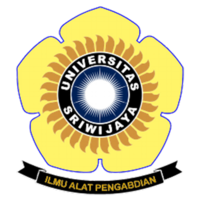Karakterisasi Charcoal Hasil Pirolisis Serbuk Gergaji Batang Kelapa sebagai Bioadsorben Halal untuk Proses Penyaringan Minyak Kelapa Murni (VCO)
Abstract
Aladin, A., Modding, B., Syarif, T., Wiyani, L., & Gusnawati, G. (2023). Characterization of charcoal resulting from pyrolysis of coconut trunk sawdust as a halal bioadsorbent for the filtering process of virgin coconut oil (VCO). In: Herlinda S et al. (Eds.), Prosiding Seminar Nasional Lahan Suboptimal ke-11 Tahun 2023, Palembang 21 Oktober 2023. (pp. 104-109). Palembang: Penerbit & Percetakan Universitas Sriwijaya (UNSRI).
One of the coconut diversification products is Virgin Coconut Oil (VCO), which is not only used for food but also for health/medicine. In the crude VCO filtering process stage, it can be done using adsorbent materials, but the selection of adsorbents needs to be selective regarding halal elements. Carbon-based coconut stem sawdust waste can be processed using the pyrolysis method to produce charcoal as a bioadsorbent in the VCO filtration process. This research aimed to characterize charcoal resulting from pyrolysis of coconut sawdust waste. Pyrolysis was carried out in a simultaneous pyrolysis reactor operated at a temperature of 400 oC, time 2.5 hours, flow rate of inert gas (Argon) 2 liters/minute. Characterization of charcoal products is carried out using proximate analysis. The characteristics of charcoal obtained are Ash Content 4.11%, volatile matter 16.85%, fixed carbon 76.57%, total sulfur 0.02%, gross calorific value 7229%. Based on this characterization it can be seen that the fixed carbon content is quite high and the sulfur content Very low or nil indicates that the charcoal resulting from pyrolysis of coconut trunk sawdust has the potential to be used as a bioadsorbent material in the VCO purification process.
Keywords
Full Text:
PDFArticle Metrics
Abstract view : 191 timesPDF - 220 times
Refbacks
- There are currently no refbacks.

